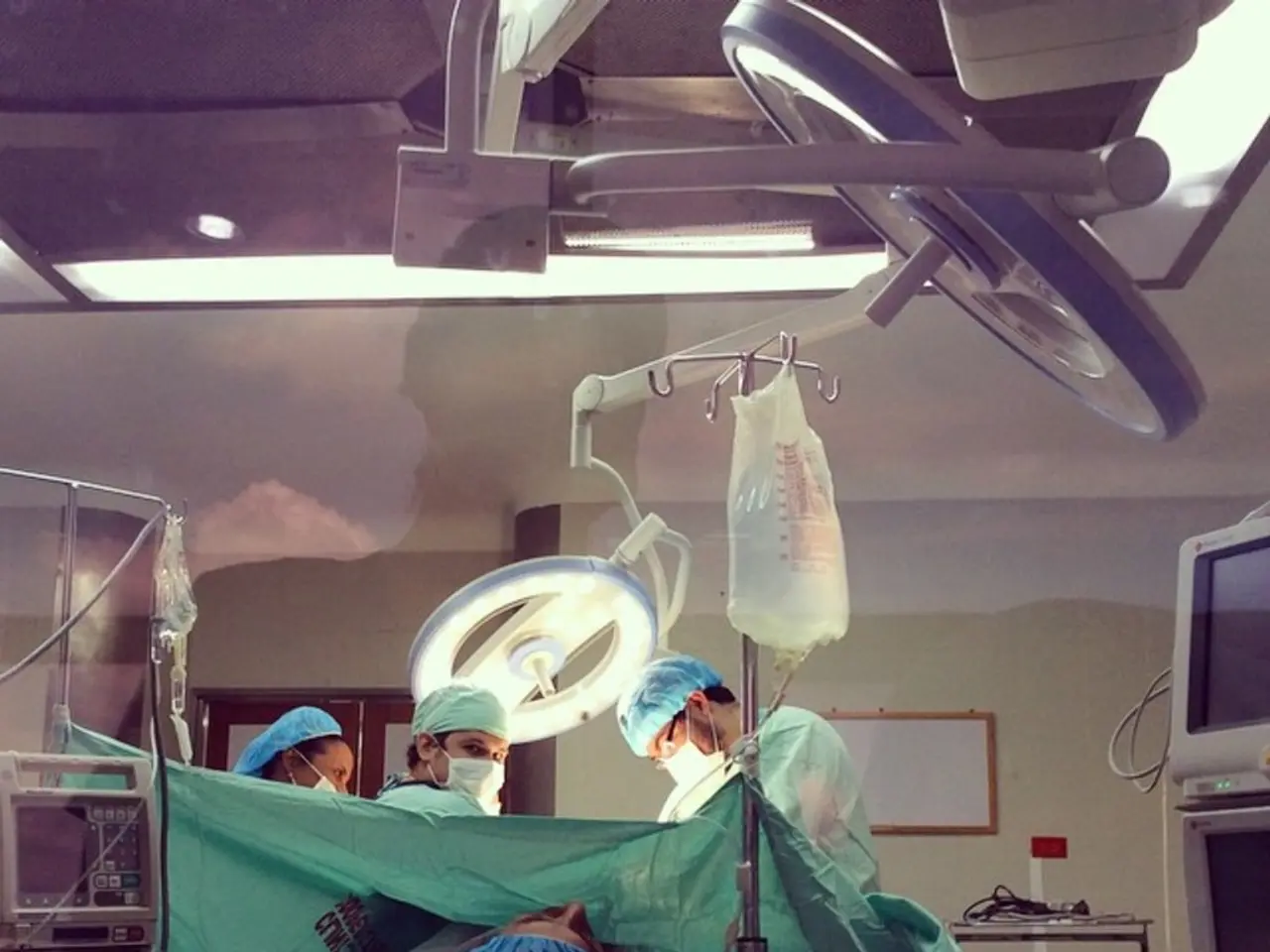Surgery for newborns receives significant enhancement
The Queen Sirikit National Institute of Child Health in Thailand has made significant strides in advancing minimally invasive surgery (MIS) techniques for newborns, transforming its practices since 1997 and establishing itself as a national center for pediatric surgery with approximately 1,500 operations annually, primarily for congenital conditions[1].
A Journey of Evolution
The institute's journey began in 1997 when Dr. Arkom Chaiwerawattana, the director of the Queen Sirikit National Institute of Child Health, started performing MIS for older children using 15-mm instruments[1]. By 2012, smaller 5-mm tools enabled operations on younger children, and since 2014, even more delicate 3-mm instruments have allowed surgeons to perform MIS directly on newborns[1]. The institute was the first in Thailand to introduce endoscopic surgery for correcting congenital anomalies in newborns, such as congenital diaphragmatic hernia, esophageal atresia, duodenal atresia, anorectal malformations, and choledochal cysts[1].
Current Practices
The institute employs advanced technologies like Indocyanine Green (ICG) fluorescence imaging, which enhances precision and safety during operations[1][4]. The procedures include thoracoscopic and laparoscopic surgeries tailored to complex congenital defects in newborns[1][4]. MIS surgeries for newborns are now performed with highly miniaturized instruments smaller than a pencil tip, improving outcomes while ensuring scar-free results[4].
Outcomes
These advancements have improved the safety, efficiency, and precision of newborn surgeries. The institute plays a crucial role in training pediatric surgeons and operating room nurses nationwide, disseminating knowledge of MIS techniques[1]. Life-saving surgeries on newborns now avoid large incisions, reducing trauma, scarring, and recovery time[4].
According to Thanin Wechapinan, a deputy director-general of the Department of Medical Services (DoMS), these innovations enhance efficiency, precision, and safety[1]. The incorporation of ICG fluorescence imaging technology, in particular, enhances clinical outcomes, as stated by Thanin Wechapinan[1].
In summary, the Queen Sirikit National Institute of Child Health has pioneered and refined advanced minimally invasive neonatal surgery techniques over nearly three decades, achieving excellent clinical outcomes through technological innovation and specialized training[1][4].
- The Queen Sirikit National Institute of Child Health, with its focus on medical-conditions and health-and-wellness, is pioneering the field by conducting groundbreaking research in advancing minimally invasive surgeries (MIS) for newborns, aided by technologies like Indocyanine Green (ICG) fluorescence imaging.
- These MIS techniques, specifically developed for newborns, are proving instrumental in the treatment of various congenital conditions, improving their outcomes in terms of safety, efficiency, and scar-free recovery, making a significant contribution to science and newborn health-and-wellness.




